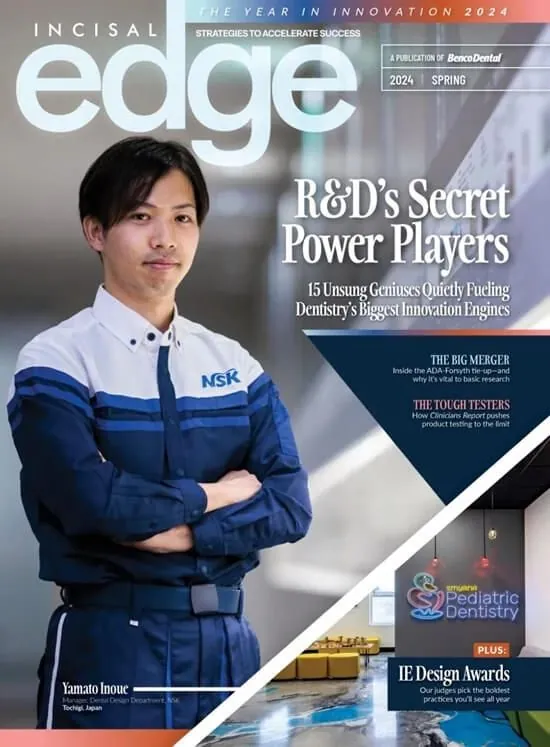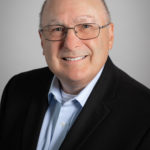HOWARD STRASSLER, DMD
Never mind (for the moment, at least) the condition of your teeth. When was the last time you gave any serious thought to the state of your vision?
MEDICAL SHOWS — from Marcus Welby to Grey’s Anatomy and every drama-filled stop in between — have been a staple of primetime television for decades. I wonder, though, how many viewers notice that whether the setting is an emergency room or a maternity ward, TV doctors are seldom wearing adequate eye protection. Yes, that’s Hollywood for you — yet were this real life there would be a high risk of infectious splashes in many of these scenes, and I defy you to find anyone’s baby blues under proper cover on television.
When I entered dental school, glasses were less a means of seeing better than they were sheer protection from debris — jagged pieces of tooth, amalgam and composite — flung hither and yon when we used a handpiece. Later, guarding against infectious spills and leakage was another point in their favor.
Of the five senses, only touch and sight have a significant bearing on the treatment we provide. Dentistry involves visualizing and evaluating the tiniest details of teeth, soft tissues, restorations, casts, radiographs and instruments. “Seeing is believing” is only half the story: For dentists, “seeing is knowing” is the only way to make a reliable diagnosis. Normal vision (or vision made normal via corrective eyewear) is often adequate for making treatment decisions, but in many other instances — treating dental pathologies, for example — magnification with both conventional loupes and an operating microscope is critical.
All dental professionals — clinicians, hygienists and chairside assistants — must monitor their vision with exquisite care. Age matters, of course; poor vision is the third-leading cause of impaired function in people over 70, and we probably all know at least one dental professional still practicing past that milestone birthday
Earlier this year, Jane Brody wrote a piece for the New York Times headlined THE WORST THAT COULD HAPPEN? GOING BLIND, PEOPLE SAY. “When eyesight fails, some people become socially disengaged, leading to isolation and loneliness,” she observed. All dental professionals — clinicians, hygienists and chairside assistants alike — must monitor their vision with exquisite care. Age matters, of course; poor vision is the third-leading cause of impaired function in people over 70, and we probably all know at least one dental professional who is still practicing past that milestone birthday.
Consider driving, a prickly issue for older adults. I have acquaintances in their nineties who still drive, and it’s a little unnerving to see them pull into traffic. How often do drivers need to get an eye exam? The answer is a little scary, frankly: Many states assess visual capacity only when you get your first license — as teens, for most of us. When you last renewed your dental license, for that matter, did you have to furnish proof of a recent eye check? I very much doubt it.
“Brush your teeth twice a day; see your dentist twice a year”: It is to our industry’s great credit that seemingly everyone in America can recite that mantra. Can anyone do so if the subject is eye exams? Most practitioners recommend a comprehensive vision review every one to two years depending on your age, risk factors and whether you currently wear corrective lenses.
I had dinner not long ago with a good friend who has been fixated on his hearing ever since his father experienced significant auditory decline after age 50. My friend gets his ears tested every six months, and he sports the latest high-tech hearing aids, which he monitors and adjusts via his phone. As we sat there, he offhandedly mentioned that he was having a hard time reading the menu. His ophthalmologist had told him he was pretty much fine, so he assumed he was. I told him to get a new eye doctor.
The next time you get an eye exam — especially if it’s been more than two years since you last had one — pay close attention to your prescription (if you have corrective lenses) to make sure it’s appropriate for the current condition of your eyes. Do you change the prescription in your loupes as often as those in your glasses? For me, the idea of sending my loupes in for a new Rx would be akin to losing my operatory light. I can scarcely imagine practicing without them. Your own visual acuity is no less important. Let’s call it the Vision Thing, to cite a once-famous phrase — and don’t forget how vital it is to the successful practice of dentistry.
HOWARD STRASSLER, DMD is a professor and the director of operative dentistry at the University of Maryland School of Dentistry. He practices in Pikesville, Maryland.




